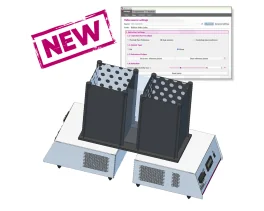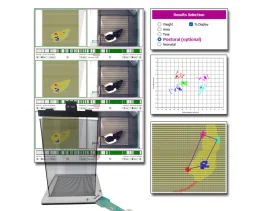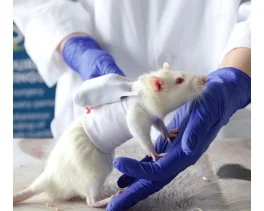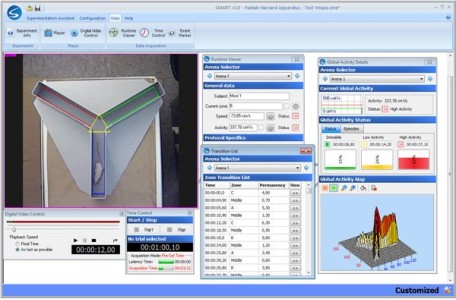Authors
E. Burguière, A. Arabo, F. Jarlier, C. De Zeeuw, L. Rondi-Reig.
Lab
Universite Pierre et Marie Curie, Memory and Aging Team, Paris, France.
Journal
The Journal of Neuroscience
Abstract
Learning a new goal-directed behavioral task often requires the improvement of at least two processes, including an enhanced stimulus-response association and an optimization of the execution of the motor response. The cerebellum has recently been shown to play a role in acquiring goal-directed behavior, but it is unclear to what extent it contributes to a change in the stimulus-response association and/or the optimization of the execution of the motor response. We therefore designed the stimulus-dependent water Y-maze conditioning task, which allows discrimination between both processes, and we subsequently subjected Purkinje cell-specific mutant mice to this new task. The mouse mutants L7-PKCi, which suffer from impaired PKC-dependent processes such as parallel fiber to Purkinje cell long-term depression (PF-PC LTD), were able to acquire the stimulus-response association, but exhibited a reduced optimization of their motor performance. These data show that PF-PC LTD is not required for learning a stimulus-response association, but they do suggest that a PKC-dependent process in cerebellar Purkinje cells is required for optimization of motor responses.
BIOSEB Instruments Used
Smart 3.0 - Video Tracking System (SMART30)
Source :

 Douleur - Allodynie/Hyperalgésie Thermique
Douleur - Allodynie/Hyperalgésie Thermique Douleur - Spontanée - Déficit de Posture
Douleur - Spontanée - Déficit de Posture Douleur - Allodynie/Hyperalgésie Mécanique
Douleur - Allodynie/Hyperalgésie Mécanique Apprentissage/Mémoire - Attention - Addiction
Apprentissage/Mémoire - Attention - Addiction Physiologie & Recherche Respiratoire
Physiologie & Recherche Respiratoire




































 Douleur
Douleur Système Nerveux Central (SNC)
Système Nerveux Central (SNC)  Neurodégénérescence
Neurodégénérescence Système sensoriel
Système sensoriel Système moteur
Système moteur Troubles de l'humeur
Troubles de l'humeur Autres pathologies
Autres pathologies Système musculaire
Système musculaire Articulations
Articulations Métabolisme
Métabolisme Thématiques transversales
Thématiques transversales Congrès & Meetings
Congrès & Meetings 